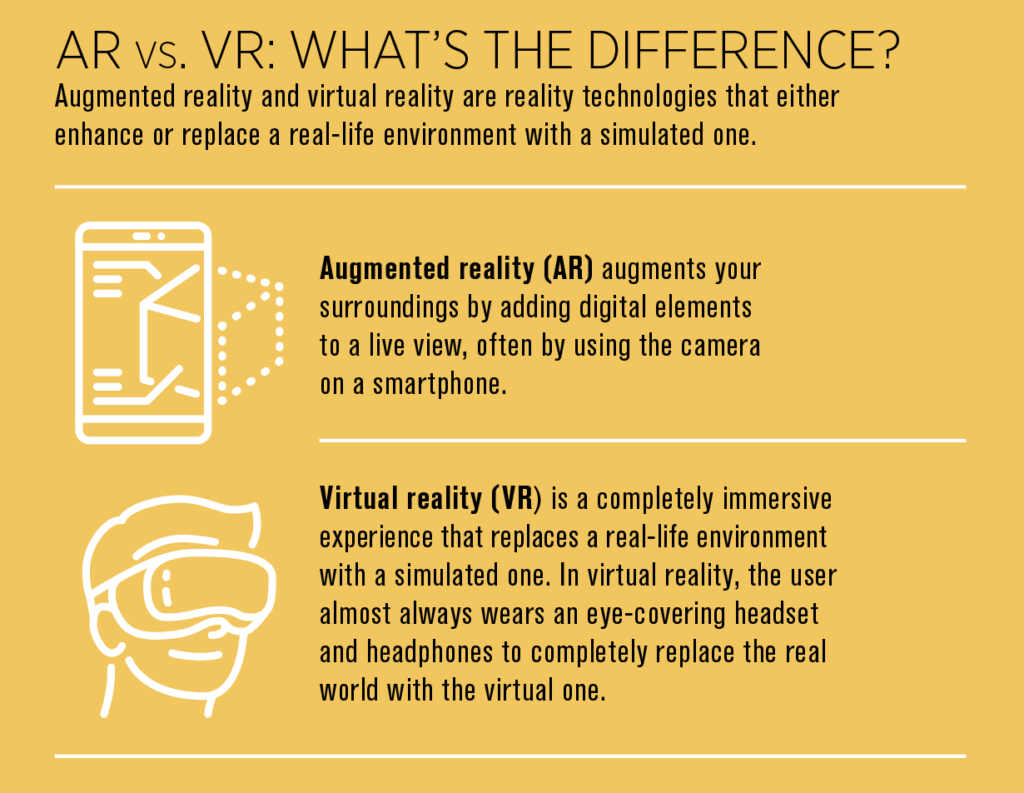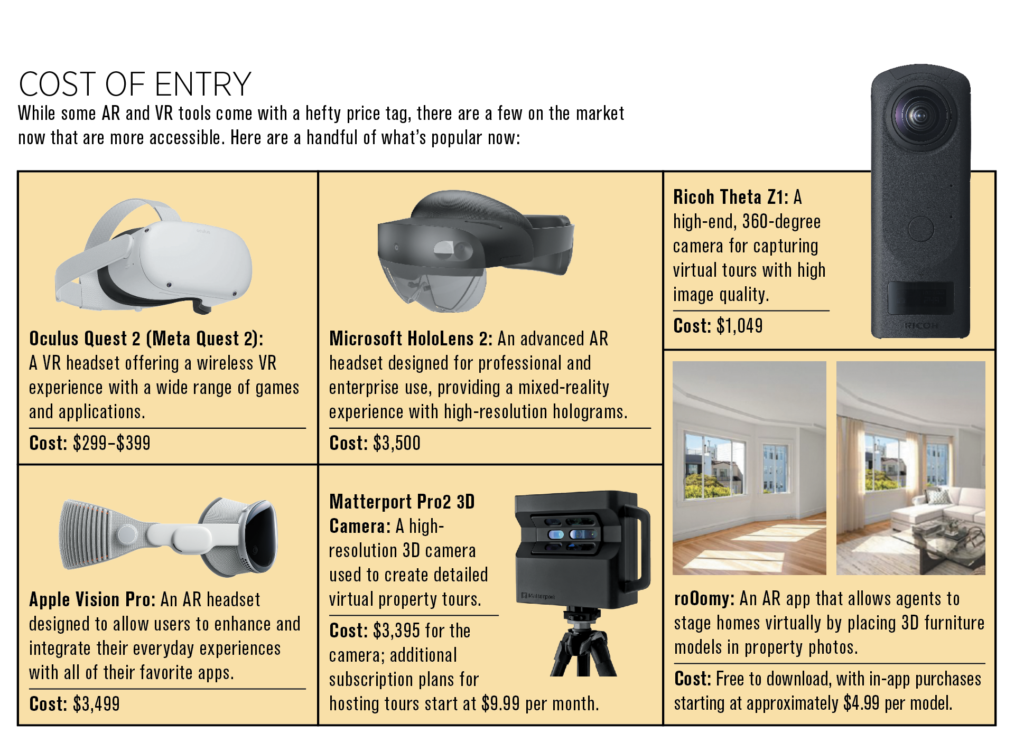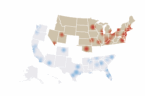Augmented and virtual reality (AR/VR) technologies offer agents innovative ways to do business
By Meredith Landry
Augmented and virtual reality in the real estate industry has been a big topic in the past, but is it really the way of the future? The COVID-19 pandemic accelerated the need for remote property viewing solutions. Because of this, the use of virtual and augmented reality (AR) has grown significantly in the real estate market. In fact, the virtual reality (VR) market alone in real estate is expected to reach $2.6 billion by 2025, according to a report by Goldman Sachs.
While the need for improved technology has grown, so too has the demand. According to a study by Realtor.com, listings with virtual tours receive 87% more views than those without. Additionally, the latest generation of potential buyers expects this type of tech-forward service.
“We’ve got an entire generation of people, from Millennials to Gen Z, who have had some introduction to AR and VR and are not averse to using it in business transactions,” says Matthew Rathbun, CRS, executive vice president at Coldwell Banker Elite in Richmond, Virginia.
Are you ready?
Some real estate agents, including Fredrik Eklund from the Bravo reality series “Million Dollar Listing New York,” are embracing the new technology by taking meetings—his avatar appears on-screen, wearing Apple’s Vision Pro headset, for instance, or reviewing 3D architectural drawings up close and personal.
But the real estate industry isn’t as up to speed, according to Rathbun.
“The real estate industry is often lagging far behind in work culture knowledge,” he says, “Agents will be the ones who lag behind in this area rather than consumers, who really want to adopt this.”
According to the National Association of REALTORS® 2023 Technology Survey, only 27% of REALTORS® reported being somewhat familiar with AR and VR, and 36% said they believe AR and VR will “probably” impact real estate.
Personally, Rathbun says he uses VR to work out at home, play ping pong and watch movies with his three daughters, who are scattered across the country.
Rathbun chooses to use Meta Quest 2 because of the lower price point. “The boxing simulator puts me on the floor in 20 minutes of a workout, and it’s also fun to connect with my kids.”
For work, Rathbun says he’s held a couple of meetings with coworkers who also have a Meta Quest headset, but those interactions have been limited.
“I’m not using it professionally a ton now, but it’s set up for that, and I think it’s 100% the future,” he says. He predicts that one day, everyone will have a set of VR goggles at their disposal.
So, when exactly is the future in his estimation?
“I think we’re much closer to that practical use than I ever thought we would be at this point in history,” Rathbun says. “Within five years, I think we’ll see people visiting a home with VR goggles.”

Off and running
AR, on the other hand, is already here.
While VR is good for remote viewing, augmented reality enhances the experience of visiting a property in person. AR allows potential buyers to visualize modifications and furnishings within a space using their smartphones or AR glasses. Applications like IKEA Place, for instance, enable users to see how furniture and decor items would look in their prospective homes, helping them make more informed decisions.
Rathbun points to other applications like iScape, which allows you to see what a home’s exterior would look like with different landscaping.
“Buyers know within six seconds of pulling up to a home if they like it or not,” he says. “Many times, the impact of the front yard or lack of curb appeal is enough to turn someone away. But with iScape, you can use AR to imagine what it would look like with just a little bit of work.”
The integration of AR and VR in the real estate industry clearly can offer transformative benefits, from enhancing property visualization to broadening market reach. But challenges like high initial costs and technical limitations are real factors delaying the AR/VR revolution. What does Rathbun think it will take to speed things up?
“I think the market will dictate that,” he says. “When the market becomes a buyer’s market, I think you’ll see agents looking to deploy more tools to get the attention of buyers, to get buyers comfortable with the buying decision and to show more value to their sellers.”

The RRC Savings Center includes Office Depot with discounts and free shipping on VR headsets. Visit rrc.savingcenter.net to learn more.
Photo: iStock Anatolii Frolov








